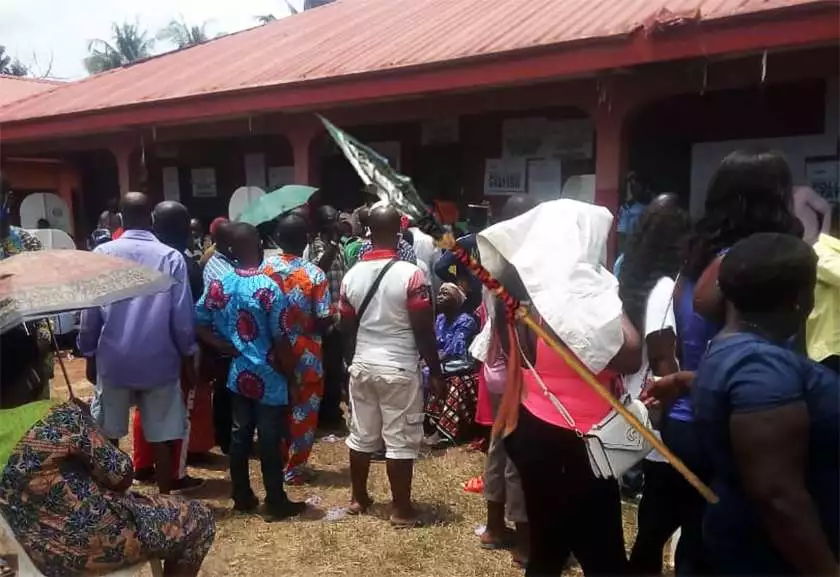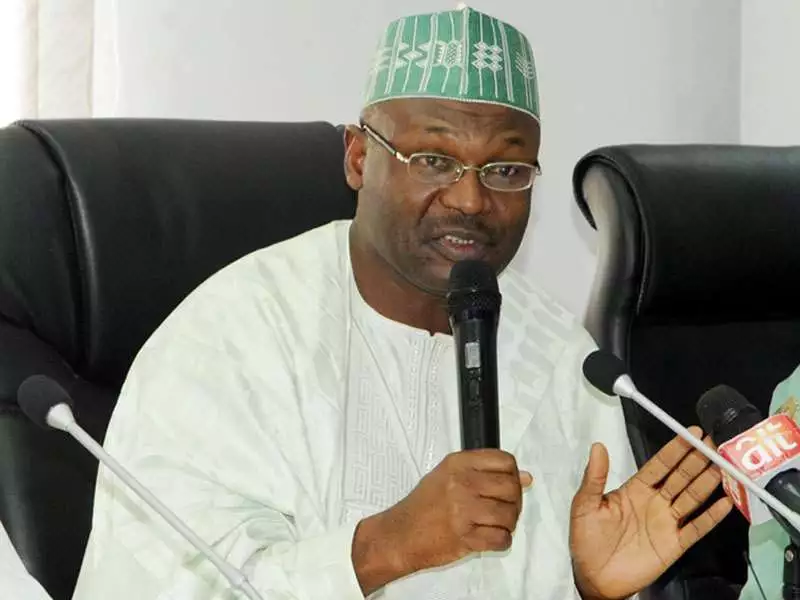Vote buying openly reigned in the just concluded Edo State Governorship election, especially in the Oredo Local Government Area. In a Mid-Day report, the Centre LSD said that voter turnout was very encouraging, but regretted that politicians openly engaged in vote buying, and were not discouraged by anybody.
The Centre praised the Independent National Electoral Commission, INEC, for the early distribution of Election materials, but regretted that voting started late at some voting centres.
Following is the Centre’s report.
PREAMBLE;
The Edo States gubernatorial election held on 19th September 2020 as scheduled by the Independent National Electoral Commission (INEC). The election is being contested by a total of 14 political parties that fielded candidates amongst who are 12 males and 2 females for the election. The total number of registered voters in Edo is 2,201,534 with total PVCs collected put at 1,735,910 while 483.868 were not collected as publicized by the Independent National Electoral Commission (INEC). The African Centre for Leadership, Strategy and Development (Centre LSD), as an accredited INEC domestic election observer organization, deployed a team of trained observers across the states to observe and provide factual election day reports. The report of the Centre’s observation is presented below:
Voter Turnout
In most of the polling units visited, there was high voter turn out with young men and women, the aged, nursing mothers expressing eagerness to cast their votes.
INEC Logistics arrangement
INEC logistics arrangement was commendable. Kits and non-sensitive materials were properly arranged. But INEC officials and voting materials did not get to all the polling units visited early. Reports across the state indicated that the average time of arrival of INEC officials was about 8:30am.
Compliance with COVID-19 Protocol for Election
Being the first election to be conducted in the COVID-19 era and coupled with the rate of preparedness by INEC, most of the polling units visited did not observe the COVID-19 protocols for the election. Only a few polling units displayed hand sanitizers, very limited laser thermometer and social distancing rules were never obeyed by the electorates.
Accreditation and voting process:
Set up was concluded before 9.00 am in 70% of the polling units visited across the State. The Polling Officers before commencement of voting informed the voters that accreditation and voting will take place simultaneously. The exercise was scheduled to end once the last person on the queue was accredited. Elderly people, pregnant women, and nursing mothers were given consideration during the accreditation and voting process. However, in Ward 12, Polling Unit 23 (Iwegie 1 Agbado primary School in Oredo LGA), accreditation did not commence until about 10:30am. In Ward 6 (Ivbioto/Asologun Primary School, Ikpoba-Okha LGA) voters register were being pasted as at 9:30am.
Vote Buying:
In Oredo LGA, Ward 12, (Iwegie 1 Primary School Agbado) with 11 polling Units, there were observable cases of open vote buying inside the voting areas while outside the gate of Adesuwa primary school voters were being induced with money in less than 20metres distance to the Police. In Ward 11, at Iguodala Primary School most voters were showing their ballot papers to party agents in order to collect N5,000 for vote cast. While in Ward 11, Unit 4 Igbanke East, Orhionwon LGA, between N3,000 and N5,000 was being shared to voters.
Security of the process:
The Nigeria Police Force had initially reported the deployment of about 31,000 personnel to maintain law and order in Edo State, there were atleast 3 policemen in most of the polling units visited alongside other security agents while a good number of them were seen at the check points within the state capital. Beyond this, as the voting processes progressed in some of the locations, armed men in security outfits moved from polling units to polling units ensuring law and order.
Functionality of the Card Reader
The card readers in most of the polling units worked perfectly and without challenge. The card reader read most of the Permanent Voters Card (PVC) presented and authenticated their fingerprints. The INEC officials were knowledgeable in the operation of the card readers and were able to manage the process. However, in Ward 7, Polling unit 4 (Umley Adesuwa primary school, Oredo LGA), there was a reported case of battery running out of power and can lead to delay in the voting process. In Polling unit 5 of the same location, there was a case of a voter wanting to vote using his card which had earlier been transferred to another location.
Challenges:
- Some challenges observed in the early stages of the election were:
- Absence of facility for physically challenged persons.
- Over concentrated/crowded polling units in majority of the wards visited.
- Late arrival of INEC personnel and materials in some locations.
- Vote buying within and outside voting areas.
Recommendation;
Based on the challenges observed above, Centre LSD team recommends the following:
- The peculiar mobility needs of people with disabilities should be considered when selecting the locations of polling units.
- INEC should make deliberate efforts to improve on its logistics and ensure that she adheres to the time scheduled for electoral processes.
- There is an urgent need for an electoral reform that takes cognizance of electronic voting in the face of COVID-19 pandemic.
- There is need for decentralization of polling units within the wards to enable reduce the challenges of contracting COVID-19 and overcrowding at the polling units.
Conclusion
INEC deserves commendation for making improvements in certain areas, particularly; the provision of braille for voters with visual impairment, training of polling officials in managing the electoral process, and the distribution of kits and non-sensitive materials. However, the commission should make efforts to address the challenges mentioned above.






